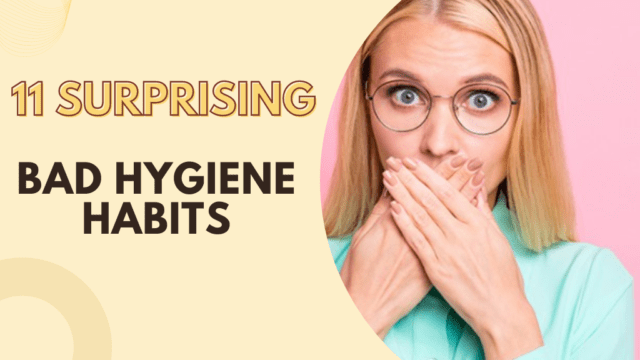Why Is Hygiene Important?
It may appear that slacking on bad hygiene habits is unimportant, and it isn’t if we’re talking about the once-in-a-while day when you don’t brush your teeth till midday. But it matters when it has an impact on your life or the lives of those around you.
In the most extreme circumstances, inadequate hygiene can produce a disease that can endanger you or others if left neglected.
Tooth decay and gum disease, both of which can harm the heart, can be caused by poor oral care.
Bathing infrequently can lead to dermatitis neglecta, a skin condition that can lead to secondary infections.
What is the Definition of Poor Hygiene?
Personal hygiene and environmental hygiene are the two kinds of poor hygiene.
Here are some examples of each.
- Personal bad hygiene habits issues include not showering frequently, not brushing teeth, not washing hands before or after handling food, and not washing hands after using the restroom.
- Poor environmental bad hygiene habits: bad hygiene habits not cleaning areas that breed bacteria, on a regular basis; leaving waste out; not properly cooking or storing food; such as the kitchen and bathroom, and not doing laundry on a regular basis
1. Resting You’re Hands-on Your Face


Several times a day, you probably lay your face on your hands. However, keep in mind that you’re putting dirt on your skin and blocking your pores. Concentrate on different ways to sit.
2. Reusing a Water Bottle Without Washing It
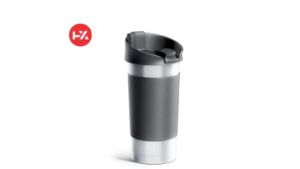

It’s unsanitary to refill your disposable plastic water bottle too frequently or to refill your reusable water bottle without washing it well. Large levels of bacteria accumulate if not cleansed, which can lead to food poisoning.
3. Not Washing Your Bras or Underwear Regularly


This should go without saying, but make sure you change your underpants on a daily basis. When it comes to bras, they have the potential to trap oils and bacteria, resulting in acne and rashes.
4. Rarely Showering


Personal cleanliness is crucial, and all you need is a brief shower once a day. Acne, rashes, and life-threatening illnesses can all be avoided with soap and water.
5. Going to Bed with Your Makeup on


One of the most common skincare blunders is sleeping with your makeup on. If you don’t wash your face every day, your pores will become clogged, resulting in blackheads and pimples. Old makeup can also travel beneath your eyes, causing inflamed lash follicles and dangerous skin diseases.
6. Walking Barefoot in Public Showers
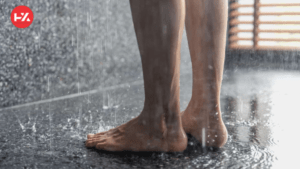

There’s a reason flip-flops and water shoes exist. Wear them if you’re at a public pool or showering at the gym. This is because perspiration, hair, and urine can create bacteria, fungi, and mildew on shower floors, which you don’t want to foot on!
7. You’re Taking Long, Hot Showers
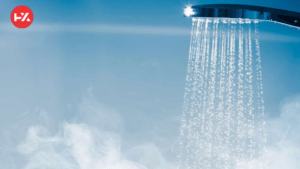

Hot showers can have a lot of detrimental consequences, including drying out the skin and removing essential natural oils. Because it dilates peripheral blood vessels, the high heat may even produce a drop in blood pressure. So keep those showers to a minimum.
8. Not washing your hands often
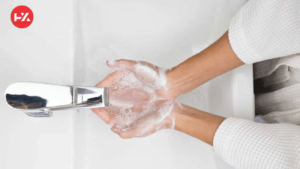

Washing our hands is essential for maintaining our health and preventing the spread of illness. Always wash your hands after coming into contact with potentially contaminated surfaces.
9. You’re Washing Your Hair Every Day
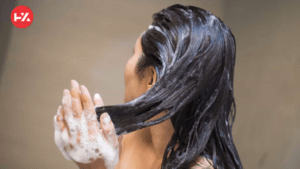

Your scalp produces natural oils that are essential for healthy, lustrous hair, and shampooing removes dirt and excess oil. However, if you do this too frequently, your hair can become dry and brittle.
10. You’re Using Q-tips
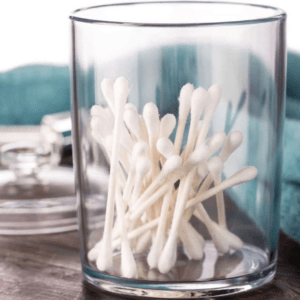

While removing extra earwax may appear to be a good thing, it frequently causes more harm than benefit. The difficulty is that when earwax is pushed down the ear canal, it causes more problems. This could compromise the eardrum and canal, potentially causing irreversible damage.
11. You’re Using Your Phone on the Toilet


While it may be tempting to take your phone to the bathroom and peruse through social media, cell phones collect a lot of germs, which you will then spread to other locations.
You probably think of yourself as a clean and bad hygiene habits person if you shower most days and brush your teeth on a regular basis. However, there’s a strong possibility you’re forgetting a few key areas that might have a major impact on your long-term health.
























